Car Makes Humming Noise When Parked (Tips for Parking)
A car makes a humming noise when parked due to a potential issue with the engine or the cooling system. When a car is parked, a humming noise may indicate problems with the engine or cooling system.
Understanding The Humming Noise
When you hear a mysterious humming noise coming from your car while it’s parked, it can be quite perplexing. Understanding the source of this noise is crucial in ensuring the well-being and functionality of your vehicle. Here, we will delve into the possible causes of the humming noise and discuss the importance of identifying its source.
Possible Causes Of The Humming Noise
There are several potential reasons behind the humming noise emanating from your parked car. Here are some key points to keep in mind:
- Wheel bearings: Worn-out or damaged wheel bearings can often result in a humming noise. These bearings help your wheels rotate smoothly, and if they are worn down, they can produce an audible humming sound.
- Serpentine belt: A faulty serpentine belt can also be the culprit behind the mysterious humming noise. As this belt powers various engine components such as the alternator, power steering pump, and air conditioning compressor, any issues with it can lead to a humming noise when the car is idle.
- Electrical issues: Electrical problems within your vehicle, such as a malfunctioning alternator, can create a humming noise. The alternator’s role is to charge the battery while your car is running, so if it’s not functioning properly, it can cause an audible hum.
- Exhaust system: A partially blocked or damaged exhaust system can generate a humming noise. As exhaust gases flow out of the engine, any issues with the system’s components, such as the muffler or catalytic converter, can result in a humming sound.
- Transmission: Problems with the transmission, such as low fluid levels or worn-out components, can manifest as a humming noise. If you notice the noise is more prominent when shifting gears, the transmission could be the likely culprit.
Importance Of Identifying The Source Of The Noise
Determining the source of the humming noise is crucial for several reasons:
- Preventing further damage: By identifying the root cause early on, you can prevent potential damage to other parts of your vehicle. Addressing the issue promptly can save you from costly repairs down the line.
- Safety: A humming noise can sometimes indicate a serious mechanical issue. By identifying the source, you can ensure the safety of yourself and other passengers, as well as other drivers on the road.
- Peace of mind: Understanding what is causing the humming noise can provide peace of mind. Once you know the problem, you can take appropriate action to resolve it, preventing unnecessary worry or stress.
- Cost-effective repairs: By accurately pinpointing the source of the sound, you can avoid unnecessary repairs. The last thing you want is to spend money fixing parts of the car that aren’t related to the issue at hand.
When your car makes a humming noise while parked, it’s essential to understand the potential causes behind it. By identifying the source early on, you can prevent further damage, ensure your safety, and save money on repairs. So, pay attention to the sound, and if it persists, consider consulting a professional mechanic to address the issue promptly.
Checking The Electrical System
Is your car making a humming noise when parked? Don’t worry, it might just be an issue with the electrical system. Here’s how you can check the key components to identify the source of the problem.
Inspecting The Battery For Issues
- Check battery terminals: Ensure that the battery terminals are clean and free of corrosion. Corrosion can hinder the flow of electricity and cause humming noises. If you notice any buildup, gently clean the terminals with a wire brush.
- Test battery voltage: Use a multimeter to measure the voltage of your car battery. A fully charged battery should read around 12.6 volts. If the voltage is significantly lower, it may indicate a weak or dying battery that needs replacing.
- Check battery age: Consider the age of your battery. If it is older than three years, it might be reaching the end of its lifespan and causing the humming noise. In such cases, replacing the battery can resolve the issue.
Evaluating The Alternator’S Functionality
- Look for warning signs: Pay attention to any warning lights on your dashboard, such as the battery or alternator light. These lights can indicate a faulty alternator. Additionally, dimming headlights or electrical issues while driving could point to an alternator problem.
- Test alternator voltage: With the engine running, use a multimeter to check the voltage output of the alternator. It should read around 13.8 to 14.2 volts. If the readings are significantly lower or higher, it may indicate a malfunctioning alternator that needs to be replaced or repaired.
Examining The Starter Motor For Problems
- Listen for clicking sounds: When you try to start your car, listen for clicking sounds coming from under the hood. This could be a sign of a faulty starter motor.
- Inspect wiring connections: Check the wiring connections to the starter motor. Loose or corroded connections can cause humming noises. Make sure they are tight and clean.
- Test starter motor solenoid: Use a voltmeter to test the solenoid on the starter motor. If it doesn’t receive or send the necessary electrical signals, it may need to be replaced.
Remember, if you’re unsure about diagnosing and fixing electrical problems, it’s always best to consult with a professional mechanic. They have the expertise and equipment to accurately diagnose the issue and provide the necessary repairs. By addressing the electrical system, you can resolve the humming noise and ensure your car runs smoothly.
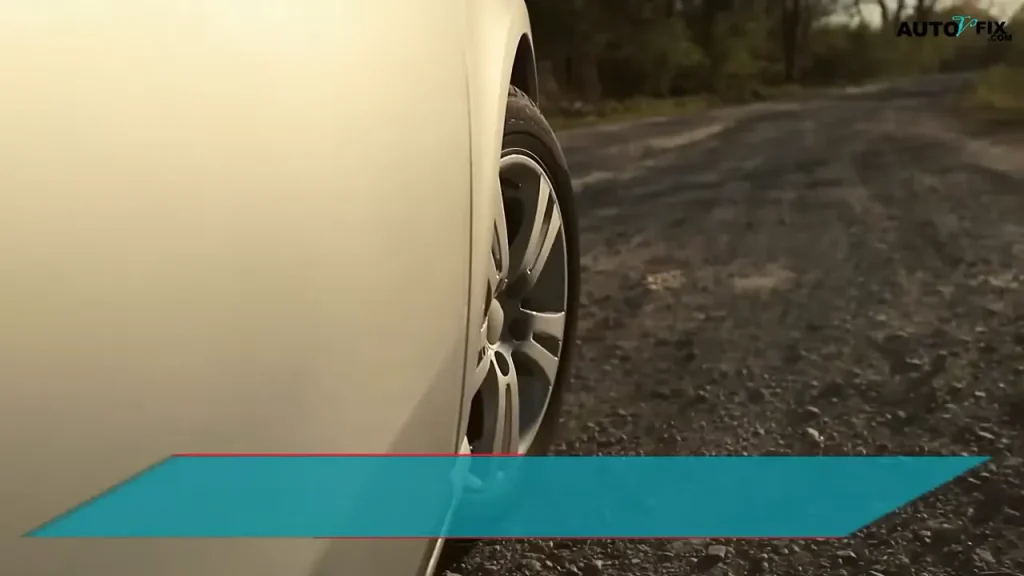
Examining The Engine Components
When it comes to diagnosing a humming noise in your car when it’s parked, it’s important to start by examining the engine components. Several factors can contribute to this noise, and a thorough inspection of certain key areas can help identify the source of the problem.
In this section, we will discuss three crucial components that are worth checking: the serpentine belt, the pulleys and tensioners, and the air conditioning compressor.
Checking The Serpentine Belt:
- Look for signs of wear and tear: Inspect the serpentine belt for any cracks, fraying, or visible damage. If it looks worn out, it may be the cause of the humming noise.
- Check for proper tension: Ensure that the serpentine belt is properly tensioned. If it’s too loose or too tight, it can result in noise and affect the performance of other engine components.
- Test for belt alignment: Verify that the serpentine belt is properly aligned on each pulley. Misalignment can cause unnecessary noise and lead to premature wear.
Inspecting The Pulleys And Tensioners:
- Examine the pulleys for damage: Inspect the pulleys for any signs of damage, such as cracks, chips, or excessive wobbling. Faulty pulleys can cause the belt to rub against other components, resulting in a humming noise.
- Assess the condition of tensioners: Check the tensioners for any signs of wear or malfunction. A faulty tensioner can cause improper belt tension, leading to noise and potential engine issues.
Evaluating The Air Conditioning Compressor:
- Check for irregularities or leaks: Inspect the air conditioning compressor for any leaks or abnormalities. Faulty or damaged compressors can create unusual noises.
- Pay attention to engagement and disengagement: Observe the compressor when the air conditioning is turned on and off. If there is a correlation between the humming noise and compressor engagement, it may indicate a problem with the compressor clutch or other related components.
Taking the time to examine these engine components can provide valuable insights into the cause of the humming noise when your car is parked. If you notice any issues during your inspection, it may be necessary to consult a professional mechanic for further diagnosis and repair.
Remember, addressing the problem early on can help prevent more significant and costly damages down the road.
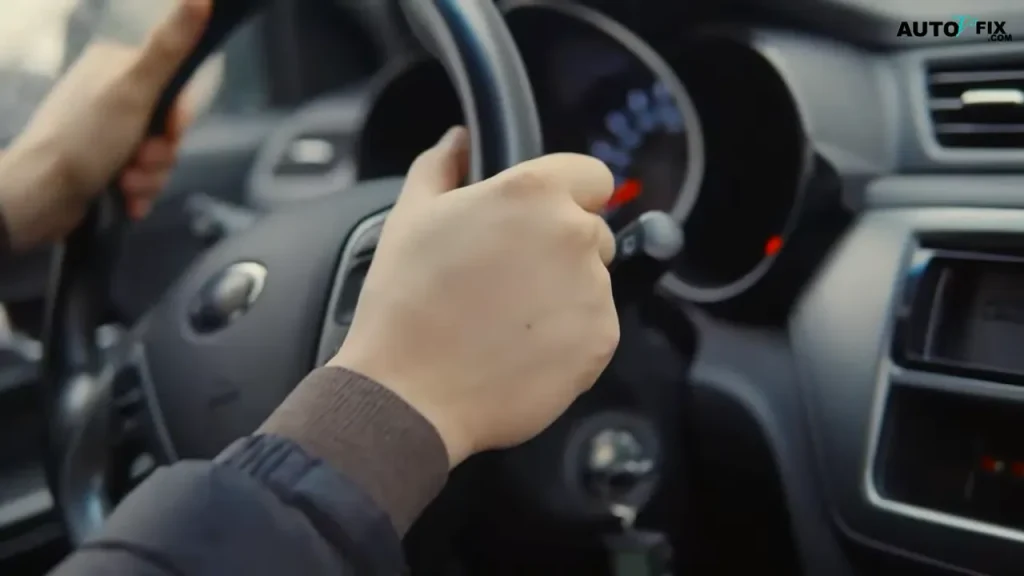
Verifying The Transmission System
If your car is making a humming noise while parked, the transmission system could be the culprit. To determine if there are any issues with the transmission, you can follow these steps:
Assessing The Automatic Transmission Fluid Level:
- Check the transmission fluid level, as low fluid can cause various problems, including humming noises. Here’s how you can do it:
- Park your car on a level surface and engage the parking brake.
- Locate the transmission dipstick, usually labeled with a bright-colored handle.
- Pull out the dipstick, wipe it clean, reinsert it fully, and pull it out again to check the fluid level.
- Ensure that the fluid is within the recommended range indicated on the dipstick.
- If the level is low, add the appropriate type and amount of transmission fluid following the manufacturer’s guidelines.
Examining The Torque Converter For Issues:
- The torque converter plays a crucial role in the transmission system. A faulty torque converter can cause humming noises when the car is parked. Here’s what you can do to inspect it:
- Consult the car’s owner manual to locate the torque converter.
- Visually inspect the converter for any signs of damage, such as cracks or leaks.
- Check for any unusual noises or vibrations while the engine is running.
- If you notice any issues, it’s best to have a professional mechanic inspect and repair the torque converter.
Analyzing The Transmission Mounts:
- The transmission mounts secure the transmission to the chassis of the vehicle. Damaged or worn-out mounts can cause the transmission to vibrate or produce humming noises. Follow these steps to analyze the mounts:
- Locate the transmission mounts, usually positioned at the front and rear of the transmission.
- Visually inspect the mounts for any signs of wear, such as cracks or tears.
- Check for excessive movement or looseness in the mounts.
- If you suspect any issues, have a qualified technician assess and replace any damaged mounts.
Remember, properly maintaining your transmission system is essential to prevent further damage and costly repairs. If you’re unsure about performing these checks yourself, it’s always a good idea to consult a professional mechanic for assistance.
So, take the time to verify the transmission system when your car is making a humming noise while parked. Ensure the automatic transmission fluid level is adequate, examine the torque converter for any damage, and analyze the condition of the transmission mounts.
By doing so, you’ll be one step closer to identifying and resolving the issue effectively.
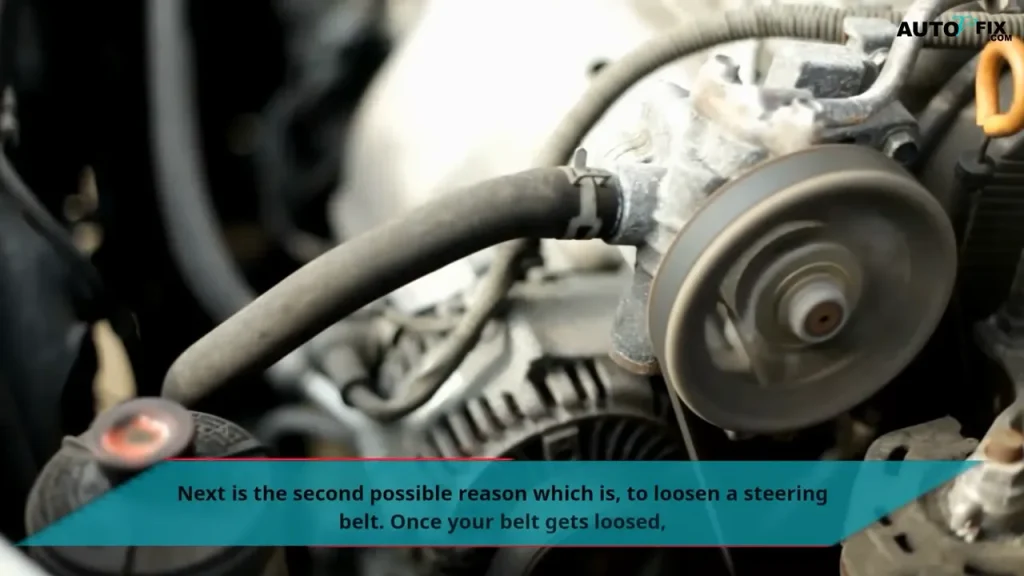
Inspecting The Exhaust System
When your car makes a humming noise while parked, it could be a sign of an issue with the exhaust system. The exhaust system plays a crucial role in your vehicle’s performance and reducing emissions. Inspecting the exhaust system can help pinpoint the cause of the humming noise and ensure your car is running smoothly.
Here are some key points to consider:
Checking For Loose Or Damaged Parts
- Inspect the entire exhaust system, including the pipes, muffler, and connections.
- Look for any signs of looseness or damage, such as rust, holes, or leaks.
- Pay close attention to the hangers, brackets, and supports, as they can also cause vibrations and humming noises if they are loose or broken.
- Tighten any loose parts or consider replacing damaged components to eliminate the humming noise.
Evaluating The Muffler And Exhaust Pipes
- Examine the muffler for signs of damage or corrosion. A damaged muffler can cause unusual noises, including humming sounds.
- Check the exhaust pipes for any cracks or holes, as these can also contribute to the humming noise.
- If you notice any problems with the muffler or pipes, it’s recommended to have them repaired or replaced by a professional.
Examining The Catalytic Converter For Faults
- The catalytic converter can sometimes be the culprit behind a humming noise.
- Inspect the converter to ensure it is securely attached and there are no visible signs of damage.
- Faulty catalytic converters can lead to restricted exhaust flow and cause humming sounds.
- If you suspect an issue with the catalytic converter, it’s best to have it inspected and repaired by an experienced mechanic.
By inspecting the exhaust system and addressing any loose or damaged parts, evaluating the condition of the muffler and exhaust pipes, and examining the catalytic converter for faults, you can effectively diagnose and resolve the humming noise issue in your parked car.
Remember, for more complex problems, it’s always recommended to consult a professional mechanic to ensure proper repairs and optimal vehicle performance.
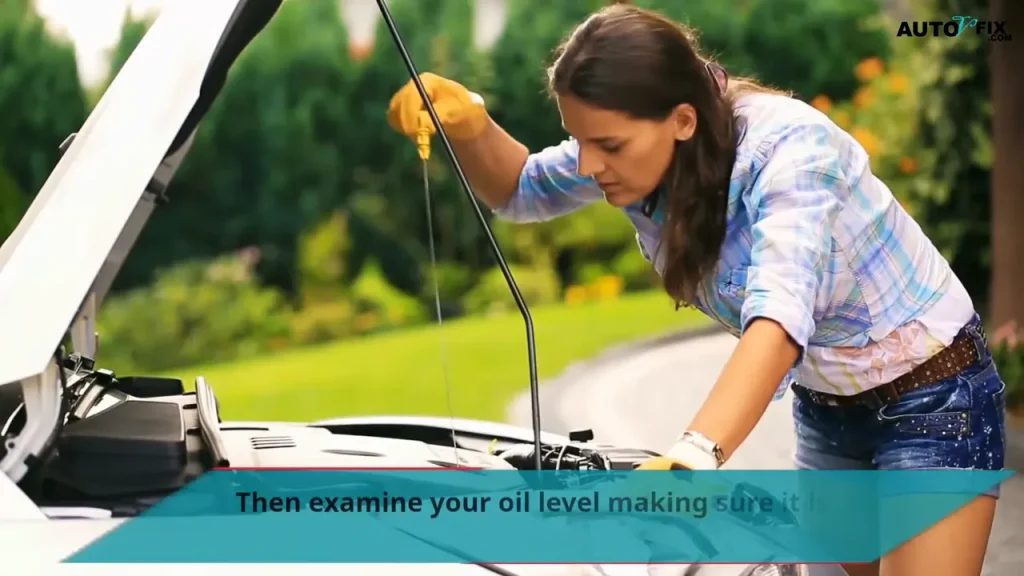
Assessing The Cooling System
Inspecting The Coolant Level And Quality
When it comes to assessing the cooling system of a car that makes a humming noise when parked, one of the first things to check is the coolant level and quality. Here’s what you should consider:
- Look at the coolant reservoir and ensure that the level is between the minimum and maximum marks. If it’s below the minimum mark, there could be a coolant leak or an issue with the radiator.
- If the coolant level is fine, inspect its quality. Healthy coolant should appear clear and vibrant in color, typically pink, green, or blue. If it looks dirty or discolored, it may need to be flushed and replaced with fresh coolant.
Evaluating The Radiator For Leaks Or Blockages
Another crucial component to examine is the radiator. Here are the key points to keep in mind:
- Inspect the exterior of the radiator for any visible signs of leakage, such as stains, drips, or puddles under the car. Leaks may indicate a cracked radiator or loose connections that need to be addressed.
- Additionally, check for any blockages in the radiator fins. These fins play a vital role in dissipating heat from the coolant. If they are bent or clogged with debris, it can affect the cooling performance and lead to a humming noise.
Checking The Water Pump For Proper Functioning
The water pump is responsible for circulating the coolant throughout the engine. Here’s what you should do to ensure it is functioning correctly:
- Start the engine and observe the water pump for any signs of leaks or unusual noises. A faulty water pump can cause coolant leaks and affect the performance of the cooling system.
- Verify that the water pump is effectively moving the coolant by carefully feeling the coolant hoses while the engine is running. They should be pressurized and warm to the touch, indicating proper circulation.
Remember, the cooling system is a critical aspect of your car’s overall health. Regularly assessing it can help identify potential issues and prevent costly repairs down the road.
Identifying Other Possible Causes
If your car is making a humming noise when parked, it’s important to pinpoint the exact cause to prevent any potential issues or damages. While worn wheel bearings could be the most common culprit, there are other components that could be causing the humming noise as well.
Let’s take a closer look at each of these possibilities:
Inspecting The Wheel Bearings
- Check for excessive play or looseness in the wheel by grabbing the tire at the 12 o’clock and 6 o’clock positions and attempting to move it back and forth.
- Listen for a growling or grinding noise while driving at varying speeds to determine if the wheel bearings are worn.
- Inspect for any signs of damage or wear on the wheel bearings such as pitting, rust, or excessive grease leakage.
- Pay attention to any vibrations or steering wheel wobbling, as this could also indicate worn wheel bearings.
Examining The Power Steering System
- Start by checking the power steering fluid level to ensure it is at the recommended level.
- Inspect the power steering belt for any signs of wear or damage.
- Listen for any unusual noises while turning the steering wheel, as this could indicate a problem with the power steering system.
- Check for any leaks in the power steering system, such as fluid dripping from the power steering pump or hoses.
Checking The Suspension Components
- Inspect the shocks and struts for any signs of leakage or damage.
- Look for worn or cracked rubber bushings on the suspension components.
- Check the control arms and sway bar links for any play or looseness.
- Listen for any clunking or knocking sounds while going over bumps or uneven surfaces, as this could point to a suspension issue.
Remember, if you’re unsure about identifying the cause of the humming noise in your parked car, it’s always best to consult a professional mechanic to get an accurate diagnosis.
Taking Immediate Actions
Car Makes Humming Noise When Parked
Has your car ever made a strange humming noise while parked? If so, it’s important to take immediate action to diagnose and solve the issue. Ignoring the humming noise can lead to bigger problems down the road. In this section, we will discuss the necessary steps to address the humming noise and ensure the optimal functioning of your vehicle.
Consulting A Professional Mechanic
When faced with a humming noise coming from your parked car, the first step is to consult a professional mechanic. They have the expertise and knowledge to accurately diagnose the issue and provide the necessary solutions. Here are a few reasons why consulting a mechanic is crucial:
- Mechanics have specialized tools and equipment to identify the source of the humming noise accurately.
- Their experience enables them to quickly identify potential problems that may be causing the noise.
- A professional mechanic can offer the most suitable solutions and provide a reliable estimate for the repair costs.
Ensuring Safety While Troubleshooting
While it’s important to address the humming noise promptly, safety should never be compromised. Here are some safety precautions to follow when troubleshooting the issue:
- Park your car in a well-lit and secure area to ensure your personal safety.
- Always engage the parking brake and shift the car into park before troubleshooting.
- Use caution when inspecting the engine or any other components to avoid injury from moving parts.
- If you’re not confident in your ability to safely troubleshoot, it’s best to let a professional handle the task.
Following Proper Maintenance Practices
Regular maintenance plays a vital role in preventing potential issues, including strange noises. Here are some maintenance practices to keep in mind:
- Follow the manufacturer’s recommended maintenance schedule for regular check-ups and servicing.
- Check the oil level, transmission fluid, and other essential fluids regularly.
- Inspect the belts, hoses, and engine components for signs of wear or damage.
- Perform regular tire rotations and wheel alignments to ensure proper balance and minimize potential noise.
By following these maintenance practices, you can minimize the chances of encountering a humming noise when your car is parked.
Remember, it’s crucial to address the humming noise promptly and take the necessary actions to prevent further damage. By consulting a professional mechanic, ensuring safety, and following proper maintenance practices, you can keep your car running smoothly and noise-free.
So, the next time your car makes a humming noise when parked, take action and get it checked out to ensure you are driving safely on the road.
Conclusion
If your car is making a humming noise while parked, it’s important not to ignore it. While some car noises are harmless, a humming noise could be an indication of a more serious issue. One possible cause of a humming noise when parked is a problem with the power steering system.
The power steering pump may be malfunctioning, causing the noise. Another potential cause could be a problem with the transmission or torque converter. These components may need to be inspected and repaired by a qualified mechanic. Additionally, a humming noise when parked could be a sign of a loose or damaged belt.
If left unaddressed, this could lead to further damage to the engine. To determine the exact cause of the humming noise, it is recommended to have your car inspected by a professional. Don’t ignore the sound – taking action now can prevent more costly repairs in the future.
- Why Are My Car Headlights Not Bright Enough? - May 9, 2024
- How Long Can You Drive With An EVAP Leak? - May 9, 2024
- What Does B Stand for in a Car? [Full Guide] - May 9, 2024

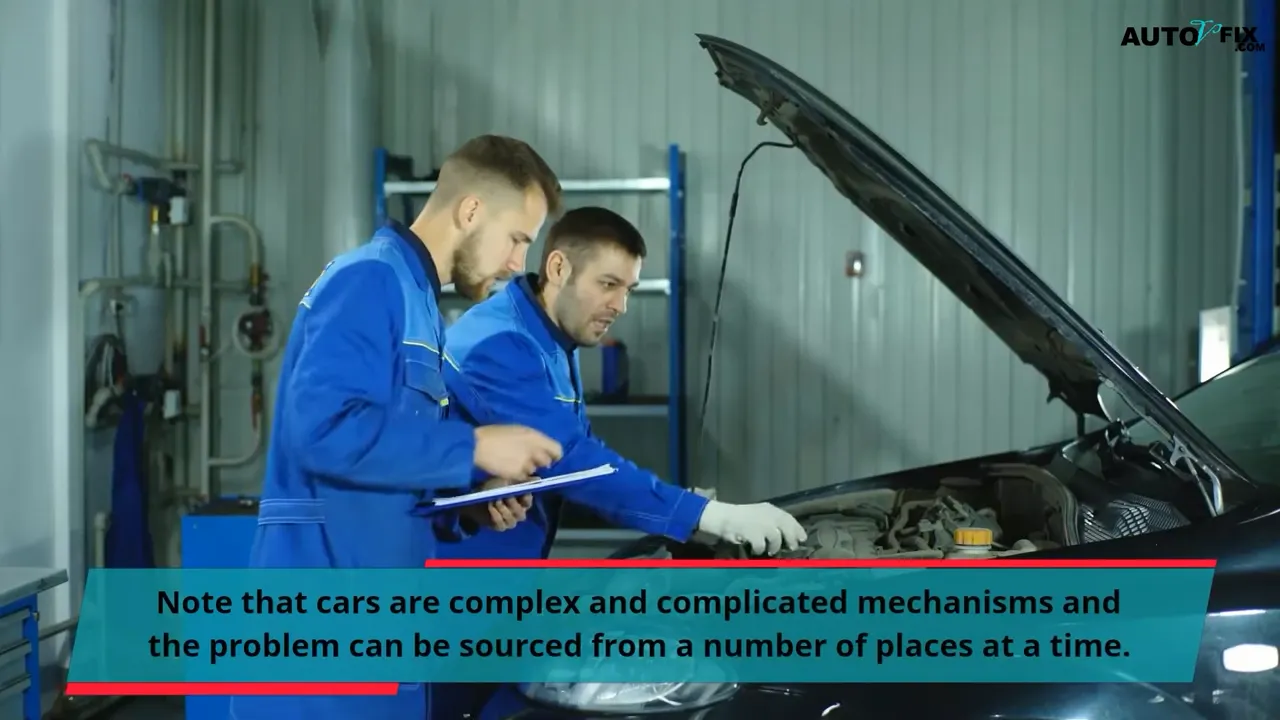
![Effortlessly Remove Water Spots From Car Windows [Expert Tips and Tricks]](https://automhelp.com/wp-content/uploads/2023/07/Water-Spots-from-Car-Windows-768x432.png)
![What Cars Are Made in Japan? [2024]](https://automhelp.com/wp-content/uploads/2023/07/CARS-MADE-IN-JAPAN-HAVE-BETTER-QUALITY-THAN-THOSE-MADE-IN-NORTH-AMERICA_-ENGINEER-COMPARES-LEXUS-RX_000064838-768x432.webp)